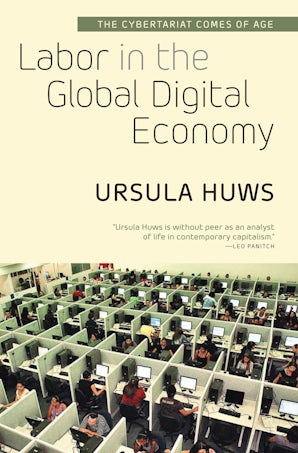Marxism 2.0? Labor in the Global Digital Economy reviewed by International Socialism

Labor in the Global Digital Economy: The Cybertariat Comes of Age
208 pp, $19 pbk, ISBN: 9781583674635
By Ursula Huws
Reviewed by Xanthe Rose
“If Karl Marx were writing Capital today and had paid attention when Friedrich Engels and his publisher implored him to make the first chapters of volume one less abstract and more accessible, rather than dismissing their suggestions with declarations about a royal road, he might well have chosen a specific commodity from which he could unravel capital. And, if he wanted to choose a commodity in which the relations of the contemporary political economy had been crystallised, he might well have chosen an iPhone. In following the social relations that sit behind the iPhone, Marx would have observed children mining for cassiterite in the Congo; followed the global production chains from the neo-futurist Apple Campus in Cupertino …”
Read the review at International Socialism: A Quarterly Journal of Socialist Theory

